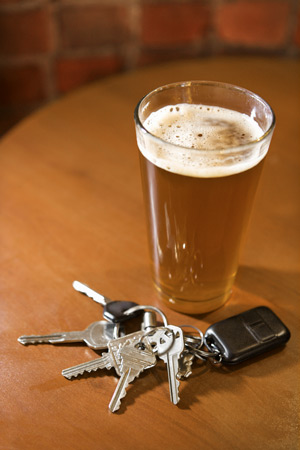Driving and Autos: Driving Under the Influence
Drunk Driving Laws
The blood alcohol limit is 0.08 percent blood alcohol content (80 mg alcohol per 100 ml of blood, 35 mg of alcohol per 100 ml of breath, and 107 mg of alcohol per 100 ml of urine). It’s possible, but rare, to be charged with driving under the influence even if your alcohol level is lower than the legal limit. The limit in the United Kingdom (UK) is higher than in other European countries, where the limit is usually 50 mg of alcohol per 100 ml of blood.
The minimum drinking age is 18, while the minimum driving age is 17.
Sobriety Test
If you are pulled over under the suspicion of drunk driving, you would be subject to a Breathalyzer test. If you fail the test or the police believe for other reasons that your driving is impaired as a result of drinking, you would be arrested. A Breathalyzer test is used during roadside stops to screen for possible violations of the law. Other tests (urine or blood) would be used to collect evidence if a driver fails a Breathalyzer test. If the test is negative, the police cannot detain you any further. Refusing to take a Breathalyzer, blood, or urine test can be just as hefty as a drunk driving conviction: up to six months in prison, a fine, and a license suspension of one year.
Drunk driving checkpoints are not uncommon, especially on holidays. The police can stop any vehicle at their discretion, and can administer a Breathalyzer test if for any reason they suspect you are driving under the influence, if you are in an accident, or if you have committed a moving violation.
Penalties for Driving Under the Influence
The maximum penalty for driving under the influence of alcohol is six months in prison, a fine, and a license suspension for at least 12 months. A second violation within a ten-year period results in a license suspension of at least three years.
Drugs and Driving
A person can be suspected of driving under the influence of legal or illegal drugs. If you are stopped by the police because they believe you are impaired, you will be subject to a Field Impairement Assessment—a series of physical challenges. If you are convicted of “drug driving” (impaired driving as the result of taking drugs, legal or illegal), you could face penalties similar to those issued for drunk driving convictions (a license suspension of at least one year and a fine), plus a criminal record and a record of your conviction on your license which lasts for 11 years.
Social Attitudes Toward Drinking
Drinking is an accepted and common practice in the UK. Alcohol is frequently served at both lunch and dinner, and it is often expected that one partake in drinking, at least at dinner. Brits consider their chances of having to complete a sobriety test to be low, and so attitudes toward drinking and driving can be quite lax. Attitudes are beginning to change, however, and support is growing for stricter drunk driving laws.
Article written for World Trade Press by Nina Bellucci.
Copyright © 1993—2024 World Trade Press. All rights reserved.

 United Kingdom
United Kingdom 